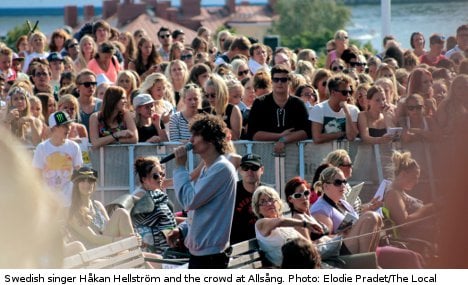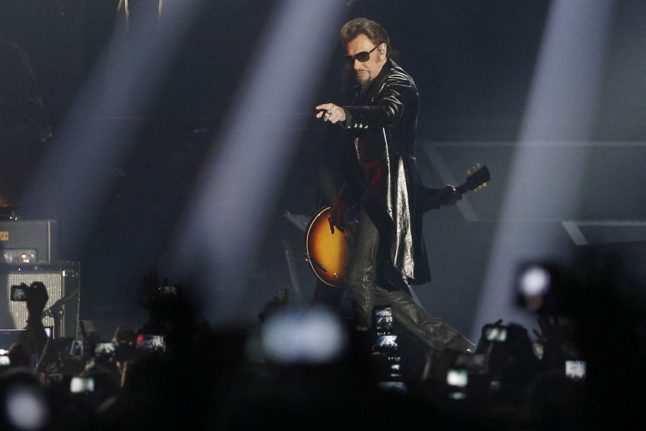I have been living here for eleven months and after a high marks on a university paper about music culture in Sweden, I thought I was pretty well-informed about the subject of music. So I left the library to go out into the world and learn about concert culture in Sweden.
At gigs and festivals, I noted how Swedish people remained quite idle despite the tunes. I had learnt that all Swedish artists start performing ten minutes late. I’d taken note of people taking the chance to leave during the second-to-last song of the concert. I knew that chanting “en gång till” (‘once again’) for an encore was actually a way to pinpoint that second-to-last song, when people took flight to avoid the scrum of a mass exodus.
And even though at every concert or festival I went to, I saw someone singing, the subdued atmosphere meant that I felt no closer to the artist than I would in front of my television or on Youtube. I was not in communion with the artist. I was not experiencing something, I was watching something happen. A concert in Sweden has always been for me a calm, sober, not too much, not too little experience. Yes, a concert in Sweden is the perfect place to understand the word lagom.
At least, that is what I used to think.
That all changed this week, on Tuesday evening, when I entered the Stockholm outdoor museum Skansen at 4pm; when I saw girls with Håkan Hellström bags on their shoulders in the queue, when I saw families going up the hill toting picnic baskets and blankets. Some had binoculars with them.
RELATED STORY:Håkan Hellström: Indie darling to stadium rocker
I admit, I went there to see Håkan Hellström. I had simply no idea about this mass hysteria that was Allsång på Skansen. People warned me. Some said they were not “really a fan of Allsång”, some others “not really a fan of Håkan”. Me, I was just this innocent groupie going to Skansen because, well, it was a beautiful sunny day in Stockholm and my Swedish idol was playing up on that hill at a really decent price. All the folklore surrounding the televised summer concerts at Skansen was just added value. I just thought that a concert with a big pop star in an outdoor museum would be a funny experience. It ended up being a lot more.
I did not know how to translate ”Allsång på Skansen” to English, but I found out quickly what that loaded term meant. The entire afternoon every Tuesday during summer, public service broadcaster Sveriges Television (SVT) films host Måns Zelmerlöv yelling his introductory “Skansen, Sverige, nu kör vi!” (‘Skansen, Sweden, let’s go!’). All while an enormous undulating crowd of sweaty Swedes hold lyrics books and sings along. Alright, Allsång kinda means sing-along.
If you just don’t understand what is special with music culture in Sweden, go to Skansen one Tuesday summer evening. People sing together, no one is stressed about how awful their voice sounds. No ashamed people in the audience. If someone isn’t singing, it’s probably because they don’t know the words, nothing else.
If you don’t understand the legendary lack of hierarchy in Swedish society, go to Skansen one Tuesday summer evening. The best place to understand that Swedish society is just one big community of people that dress the same, sing the same, and like to do the same thing. Once again, it will be hard to find people who stand out in the crowd.
Nobody will try to show you how well they can sing, but everybody will sing-along as best they can.
Elodie Pradet



 Please whitelist us to continue reading.
Please whitelist us to continue reading.
Member comments